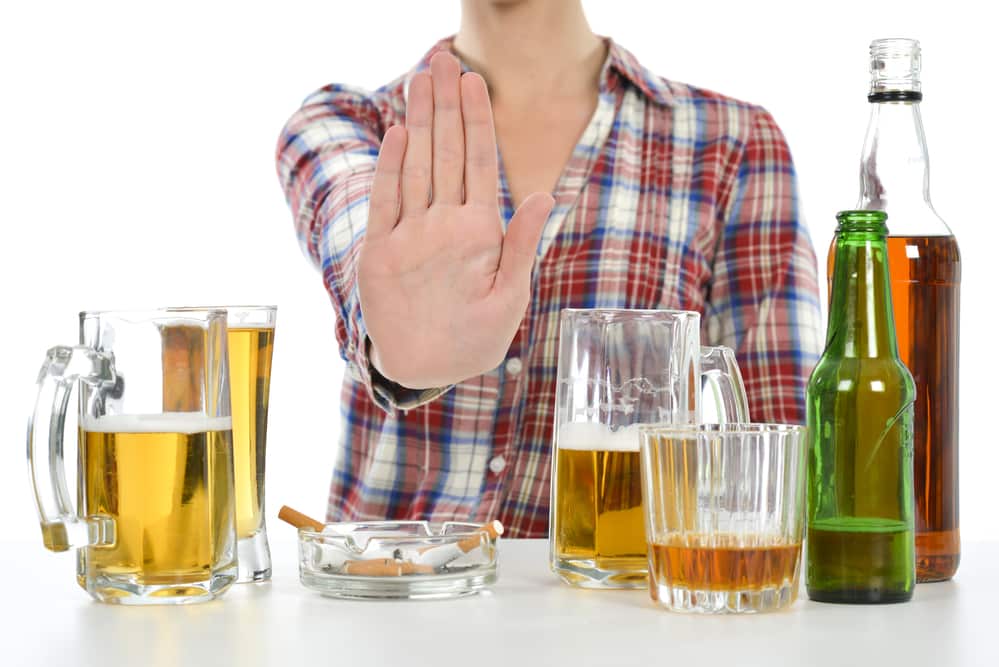Asheville, N.C. is often referred to as “Beer City”, which can be difficult for recovering addicts who live there. There are always so many events and activities to go to that include the sale and consumption of beer and other types of alcohol. For recovering alcoholics who live in Beer City, it can be stressful to constantly have to avoid these events. Here are a few ways that you can stay sober in Beer City, and advice for what to do if you relapse.
Tips and Tricks for Staying Sober
Once you’re out of rehab for the first time or you’ve gotten sober on your own, staying sober can seem incredibly daunting, especially in a city like Asheville, N.C. In order to stay sober and prevent relapse, you have to work on yourself. Learn new habits while simultaneously forgetting the old. You should have learned some tips and tricks in rehab, but it’s important to build on those healthy habits. Here are a few tips and tricks for staying sober after getting clean.
Identify Your Triggers
First and foremost, it’s important to know what triggers you and makes you want to consume alcohol. Are there certain people, situations, or locations that make you more likely to drink? It’s best to avoid these people and places for the time being while you work on your stability. After you’ve developed healthy coping mechanisms and have been sober for a long time, you may be able to face these triggers without relapse. However, it’s important to avoid them in the beginning stages.
For many alcoholics, triggers include bars, clubs, and places where alcohol is sold. This can be difficult to avoid in Asheville, but it is possible. Find your safe spaces, and stay home if you don’t feel like you can handle going out on the town. Common triggers can also include mental health troubles, like stress, anxiety, and depression. To avoid these, seek treatment for your mental health disorders and learn healthy coping mechanisms (but more on that later).
Learn the Warning Signs of Relapse
It’s important to learn the warning signs of relapse so you can identify them in yourself. If you’re able to easily recognize the warning signs of relapse, you may be more likely to stop yourself from drinking by speaking to a sponsor or therapist. Warning signs of relapse include:
- Addictive thinking patterns
- Intense cravings
- Compulsive or self-defeating behaviors
- Seeking out triggering situations
- Meeting with people who you’ve drank with before
- Finding yourself in triggering situations with no escape
Focus on Healthy Relationships
By focusing on your new healthy relationships, you may feel more secure and supported. If you return back to your broken, damaged relationships with people who encourage you to drink, it’ll be easier for you to relapse. Instead, hang out with people who support you and won’t enable you to engage in dangerous behaviors that may cause you to start drinking again. While you should support your fellow addicts, hanging out with people who don’t suffer from addiction is important too. You should inform these people that you don’t drink and would prefer that they didn’t drink around you. Together, you can engage in non-alcohol-related activities.
Build a Support System
By having a healthy support system, you’ll have people to turn to when you feel like you might relapse. A healthy support system can include a sponsor, support group, friends, and family. These should be people that you trust not to enable you. You should also continue your treatment post-rehab by working with a counselor or therapist. This way, you’ll always have someone to talk to when you’re worried you might relapse, whether it’s a friend, family member, sponsor, or therapist.
However, it’s important to remember that they’re people too, and you shouldn’t always rely on them to fix your problems. If you’re struggling with your sobriety, talk to professionals about how they can help you stay sober.
Learn Healthy Coping Mechanisms
Many people turn to alcohol because they don’t have any healthy coping mechanisms in their life. When they’re feeling sad, stressed, or anxious, they simply don’t know what to do to make themselves feel better. To prevent yourself from drinking when these feelings occur, you should develop healthy coping mechanisms. Healthy coping mechanisms can include going for walks, hanging out with a pet, watching a comfort show, or speaking with a friend. If you really feel like you can’t cope with a certain situation, it might be time to speak with your therapist or sponsor about how you’re feeling. They’ll be able to help you with more serious matters that really tempt your sobriety.
What to Do If You Relapse
Relapse is very common amongst alcohol addicts, and while you should work hard to prevent relapse from occurring, you shouldn’t beat yourself up if it happens. In fact, you should have a plan in place for when relapse occurs (because it’s likely that it will at some point in your life). You should set up a few different plants based on the severity of your relapse and your ability to get back on track.
For example, if your relapse is severe you should plan to return to rehab, if your relapse is minor, it may only warrant a conversation with your sponsor about how to avoid future relapses. Either way, you should have a plan in place in order to prevent your relapse from turning into a full-blown, uncontrollable addiction again.
Seek Treatment in Asheville, N.C.
If you or someone you love is struggling with alcoholism in Asheville, N.C., we’re here to help you. Here at Asheville Recovery Center, we offer a variety of different treatment programs including partial hospitalization, outpatient, and detox referral programs. Whether you just realized you have a problem or you’ve recently relapsed, we’ve got your back. To learn more about our treatment program options, give us a call today. We’re eager to answer any questions you may have and guide you on the path to recovery.








